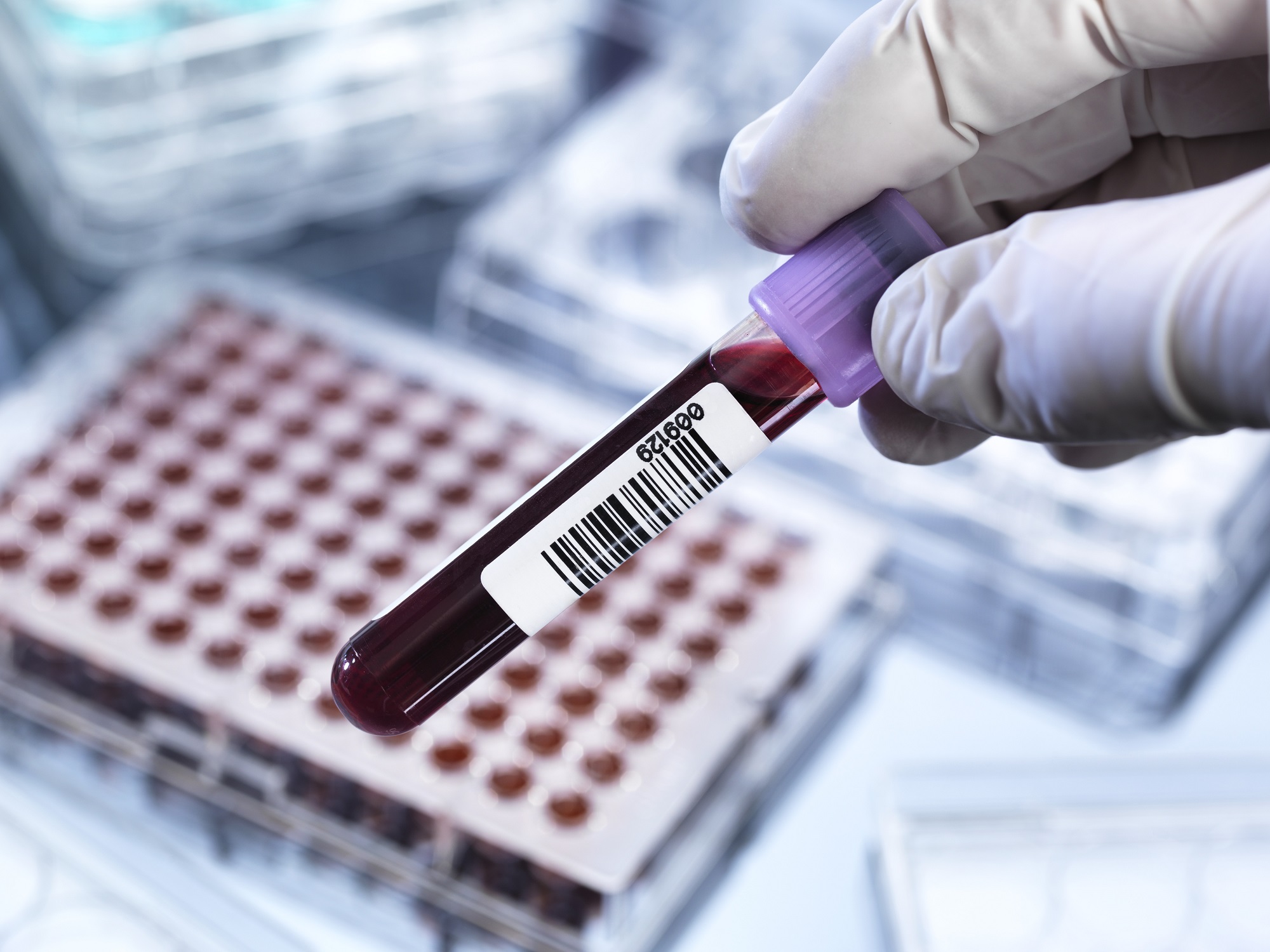Blood
AAIC 2023: Blood Tests for Detecting Alzheimer Disease Show Promise
At the Alzheimer’s Association International Conference 2023, several studies on the use of blood tests for the diagnosis and treatment of Alzheimer disease (AD) were presented, highlighting the viability of blood tests for future AD screening.
Currently, there are barriers when it comes to the use of blood tests for AD such as; requiring patients to visit a specialized clinic and have the test administered by trained personnel, with time-limited temperature-dependent delivery and storage procedures.
Finger Prick Test Detects Blood-Based Biomarkers of AD
Capillary blood collected through finger prick was as reliable as blood collected through standard venous method in detecting AD biomarkers. Furthermore, the blood samples were stably transported within 1 day with no specific storage conditions.
In a pilot study1, researchers collected blood from 77 patients from a memory clinic through finger prick and standard venous blood collection. The finger-pricked blood samples were transferred onto capillary dry blood spot cards, while the venous blood samples were transferred onto venous dry blood spot cards. The dry blood spot cards were then shipped overnight without temperature control or cooling.
Researchers compared plasma biomarkers related to AD — neurofilament light, glial fibrillary acidic protein, and phosphorylated tau (p-tau181 and p-tau217) — in the capillary and venous dry blood spots to EDTA plasma.
The levels of glial fibrillary acidic protein (r= 0.7180; P <.0001), neurofilament light (r= 0.6967; P <.0001), and p-tau217 (r=0.8995; P =.0002) found in the capillary dry blood spots significantly correlated with their respective levels in EDTA plasma. Only p-tau181 levels from the capillary dry blood spots did not correlate with the same levels in EDTA plasma. The venous dry blood spots were also found to have similar detectable biomarker levels as EDTA plasma.
AD Blood Tests May Improve Diagnostic Accuracy in Primary Care
Blood tests accurately detected AD in more than 75% of cases, while physicians correctly identified AD in 54% of cases, highlighting the viability of blood tests for improving diagnostic accuracy in a primary care setting.
For the BioFINDER-Primary Care study2, researchers examined 307 patients (mean age, 76 years; 48% women; 49% AD pathology) who had cognitive complaints. They aimed to compare the diagnostic accuracy of blood plasma-collected p-tau217 ratio and Aβ42/40 ratio with standard diagnosis by primary care physicians (PCPs). The PCPs were assigned to diagnose AD based on the results from computerized tomography (CT) scans, magnetic resonance imaging (MRI) scans, and cognitive tests. Their diagnosis was compared to the findings of C2N’s Precivity AD2 blood test, which utilizes mass-spectrometry to measure the p-tau217 ratio and Aβ42/40 ratio, which are blood plasma biomarkers of AD.
AD pathology was confirmed by the US Food and Drug Administration (FDA)-approved cerebrospinal fluid Aβ42/p-tau181 test or readings of 18F-flutemetamol from an amyloid-β positron emission tomography scan.
The researchers found that the Precivity AD2 blood test had decent accuracy; the area-under-the-curve was 0.80 (95% CI, 0.75-0.86) for the Aβ42/40 ratio, 0.91 (95% CI, 0.88-0.94) for the p-tau217 ratio, and 0.94 (95% CI, 0.92-0.97) for the algorithm.
Additionally, in those with available PCP questionnaires (n=265), the PCPs were able to correctly diagnose AD in 54% of the cases, while the Aβ42/40 ratio and p-tau217 ratio correctly identified 77% and 85% of patients, respectively.3
A total of 87% of PCPs followed treatment guidelines, but that led to 50% of confirmed patients with AD that did not receive symptomatic treatment and 30% of patients who did not have AD incorrectly received symptomatic treatment. The physicians’ mean certainty of diagnosis for AD was recorded as 4.7 out of 10.
AlzoSure Predict Test Has High Predictive Ability for AD
A blood test was found to predict cognitive deterioration due to AD within 2 years and 6 years with an area under the curve (AUC) of almost 1, which indicates perfect accuracy. This further demonstrates how blood tests can be used in patients at risk for AD.
Using data from the Australia Imaging, Biomarkers and Lifestyle study3, researchers collected blood samples from 479 individuals with and without cognitive impairment aged 60 to 85. The researchers used this data to assess the ability of Diadem US Inc’s AlzoSure Predict blood test to accurately determine whether individuals aged older than 50 will experience significant cognitive decline due to AD years before the full onset of symptoms. Accuracy was measured via AUC; an AUC of 0.5 signifies 50% accuracy while an AUC of 1 represents perfect accuracy.
The blood test predicted cognitive deterioration due to AD within 2 years and 6 years with an area under the curve (AUC) of 99.8% and 98.4%, respectively.
“Due to the lack of accurate diagnostic tools, it is currently very difficult for primary care doctors to identify Alzheimer’s disease… Blood tests for Alzheimer’s disease have great potential for improving diagnostic accuracy and proper treatment of people with Alzheimer’s,” said the researchers, in a press release.4
References:
- Huber H, Montoliu-Gaya L, Blennow K, et al. A finger prick collection method for detecting blood biomarkers of neurodegeneration – a pilot study (DROP-AD). Abstract presented at: AAIC 2023; July 16-20, 2023; Amsterdam, Netherlands. Abstract 80275.
- Palmqvist S, Tideman P, West T, et al. Blood biomarkers improve the diagnostic accuracy of Alzheimer’s disease as compared with current diagnostic standard in the primary care setting. Abstract presented at: AAIC 2023; July 16-20, 2023; Amsterdam, Netherlands. Abstract 78819.
- Agus S, Piccirella S, Van Neste L, et al. The performance of AlzoSure® Predict in stratifying the risk to experience a significant cognitive deterioration, due to Alzheimer’s disease. Abstract presented at: AAIC 2023; July 16-20, 2023; Amsterdam, Netherlands. Abstract 76902.
- Simple finger prick test exemplifies advances in Alzheimer’s disease blood tests. News release. AAIC 2023. July 19, 2023. Accessed August 2, 2023. https://aaic.alz.org/releases_2023/finger-prick-blood-test-alzheimers-disease.asp

